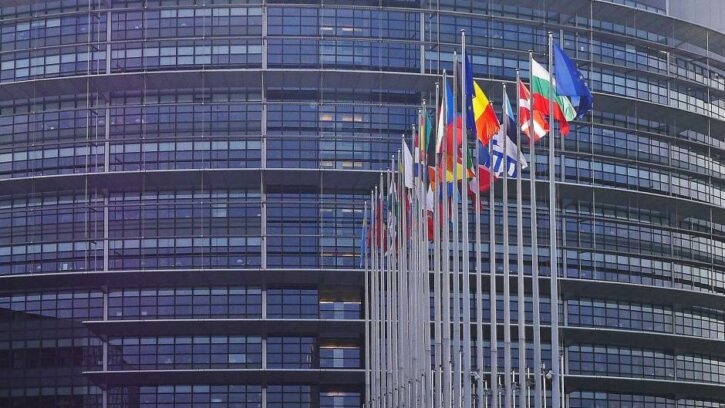
The European Parliament said on Thursday that Serbia was backsliding on reforms necessary for it to join the European Union, expressing concern about the growing influence of China and Russia on the country.
The European Parliament “regrets the lack of progress in many areas of Serbia’s reform agenda and the fact that there has even been backsliding on issues that are fundamental for EU accession,” Parliament said in a resolution on the European Commission reports on Serbia for 2019 and 2020.
It called on the Commission to change its reporting methodology in order to take account of significant backsliding and send a clear message to Serbia.
The resolution was adopted by 538 votes in favour, 69 against and 79 abstentions.
Croatian MEPs voted in favour of the resolution, except for Ruža Tomašić (European Conservatives and Reformists) and independent Mislav Kolakušić who abstained and independent Ivan Vilibor Sinčić who voted against.
The resolution says that the pace of alignment of Serbia's legislation with that of the EU was “significantly slower” than planned, and that “limited progress” has been made in Chapter 23 (judiciary and fundamental rights) and Chapter 24 (justice, freedom and security).
It notes that the normalisation of relations with Kosovo and the genuine respect of fundamental rights continue to be essential and will determine the pace of accession negotiations.
Despite the fact that the EU is Serbia’s leading trading partner, investor and aid donor; Serbia pays disproportionate attention to third countries, the EP said, expressing “concern about China’s increasing influence in Serbia and across the Western Balkans and the lack of transparency and environmental and social impact assessment of Chinese investments and loans.”
The EP also expressed concern over “Serbia’s increasing dependence on defence and security equipment and technologies from the People’s Republic of China, including a mass surveillance system in Belgrade and mass personal data collection without appropriate safeguards”.
It “continues to be concerned about Serbia’s close political and military cooperation with Russia, including the continued presence of Russian air facilities in Niš.”
The EP reiterated the importance of alignment with the EU common foreign and security policy as a condition for the accession process.
The Serbian authorities were called upon “to continue their efforts to eliminate the legacy of the former communist secret services by making its files open to the public, as a step towards the democratisation of Serbia.”
Serbia was called upon “to intensify the process of succession and implementation of obligations relating to the division of the common archive of the former Yugoslavia.” In this connection, the European Parliament reiterated “that full access to all archival materials, especially those of the former Yugoslav Secret Services (UDBA) and the Yugoslav People’s Army Secret Service (KOS) is of vital significance” and reiterated its call on the authorities “to facilitate access to those archives that concern the former republics of Yugoslavia and to return them to their respective governments if they so request.”
The resolution also cited the government's influence on the judiciary, media and non-governmental organisation, as well as organised crime as problems hampering the country's progress in the European integration process.





Kakvo je tvoje mišljenje o ovome?
Budi prvi koji će ostaviti komentar!